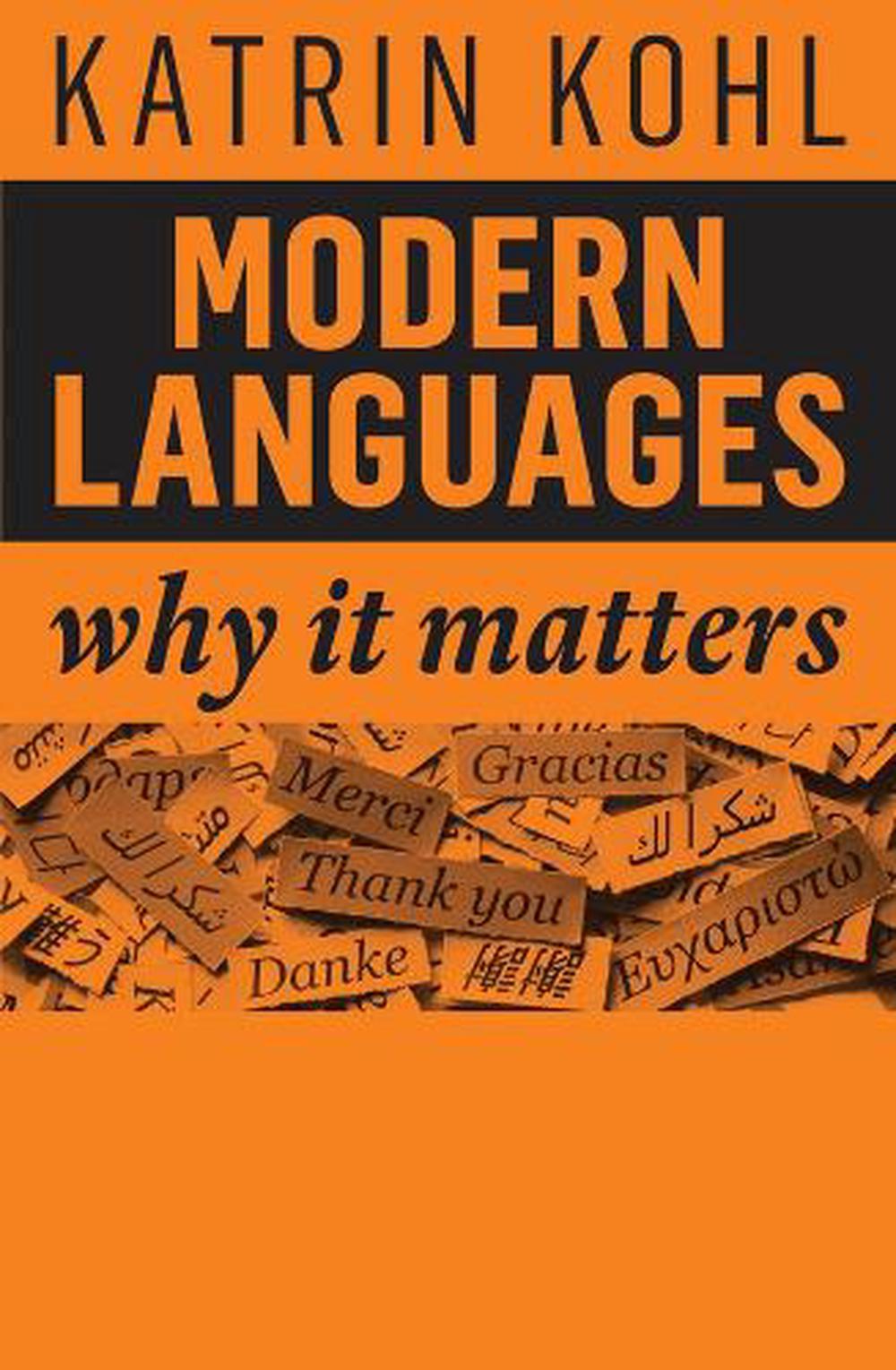
When you click on links to various merchants on this site and make a purchase, this can result in this site earning a commission. Affiliate programs and affiliations include, but are not limited to, the eBay Partner Network.
Modern Languages: Why It Matters by Katrin Kohl (English) Paperback Book

- Item No : 365654400280
- Condition : Brand New
- Brand : No brand Info
- Seller : the_nile_uk_store
- Current Bid : US $24.17
-
* Item Description
-
The Nile on eBay

Modern Languages
by Katrin Kohl
"A star scholar's passionate treatise on how learning other languages can change how we see the world, for the better"--
FORMAT
PaperbackLANGUAGE
EnglishCONDITION
Brand New
Publisher Description
It might seem as if globalization is making the whole world speak English. But spend time in any major city and you are likely to encounter a cornucopia of languages. Even monolingual people have different ways of speaking to their bosses or teachers, their intimate friends or their pets. And if you live in India or Nigeria, you might use five different languages during a typical day. Katrin Kohl makes a passionate case for why we must embrace languages in all their diversity. When you study a language, you open a unique doorway into the world, immerse yourself in a different way of seeing, and discover new ways of communicating with people from different cultures on their terms. Kohl argues that language diversity is of vital importance to human societies, sustaining the complexity of human nature, culture and technology. We should care about preserving it as much as we care about preserving the diversity of our biological world.
Table of Contents
Preface: Why Languages Matter 1 Understanding Identity Divergence and Convergence in the World of Languages Cultural Identities and Language Diversity Preserving Linguistic Identities Languages as a Political Minefield Notes 2 Experimenting with a New Medium Tapping into Creative Potential Everyone's a Linguist Committing to a Language The Infinite Potential of Transferable Skills Notes 3 Exploring Difference Untranslatable Words? Translating Nuggets of Cultural History The Past and Future of Translation Notes 4 Training Cultural Intelligence The Role of Languages in Cultural Intelligence Does Language Influence How We Think? Cultural Intelligence in Practice Recognizing Limits Notes 5 Developing the Imagination Straight to the Heart Creative Subversions Stimulating the Imagination Notes 6 Negotiating Globalization National Identity and Globalization Legacies of Colonialism National or Transnational? Empowering Language Diversity Notes Afterword: Sustaining a Multilingual Future Notes Further Reading Index
Review
'Anyone who thinks "English is enough" should read this book! It is a well-grounded, elegant and passionate appeal to halt our descent into the fruitless desert of monolingualism.'
David Bellos, Princeton University 'A powerful and timely explanation of the discipline of Modern Languages and why it is fundamentally important both to universities and society.'
Charles F. Burdett, Durham University
'Modern Languages is a clear and engaging reminder to monolingual first-language English speakers of their responsibility to respect, embrace and promote linguistic diversity.'
Times Literary SupplementReview Text
'Anyone who thinks "English is enough" should read this book! It is a well-grounded, elegant and passionate appeal to halt our descent into the fruitless desert of monolingualism.' David Bellos, Princeton University 'A powerful and timely explanation of the discipline of Modern Languages and why it is fundamentally important both to universities and society.' Charles F. Burdett, Durham University 'Modern Languages is a clear and engaging reminder to monolingual first-language English speakers of their responsibility to respect, embrace and promote linguistic diversity.' Times Literary Supplement
Review Quote
'Anyone who thinks "English is enough" should read this book! It is a well-grounded, elegant and passionate appeal to halt our descent into the fruitless desert of monolingualism.' David Bellos, Princeton University 'A powerful and timely explanation of the discipline of Modern Languages and why it is fundamentally important both to universities and society.' Charles F. Burdett, Durham University
Details
ISBN1509540547Pages 140Series Why It MattersYear 2020ISBN-10 1509540547ISBN-13 9781509540549Short Title Modern LanguagesLanguage EnglishFormat PaperbackSubtitle Why It MattersDEWEY 407.1Publication Date 2020-12-18UK Release Date 2020-12-18Imprint Polity PressPlace of Publication OxfordCountry of Publication United KingdomNZ Release Date 2020-12-18Author Katrin KohlPublisher John Wiley and Sons LtdAlternative 9781509540532Audience Tertiary & Higher EducationAU Release Date 2020-12-17


-
- NO GRID Survival Projects
- $ 37.00
















